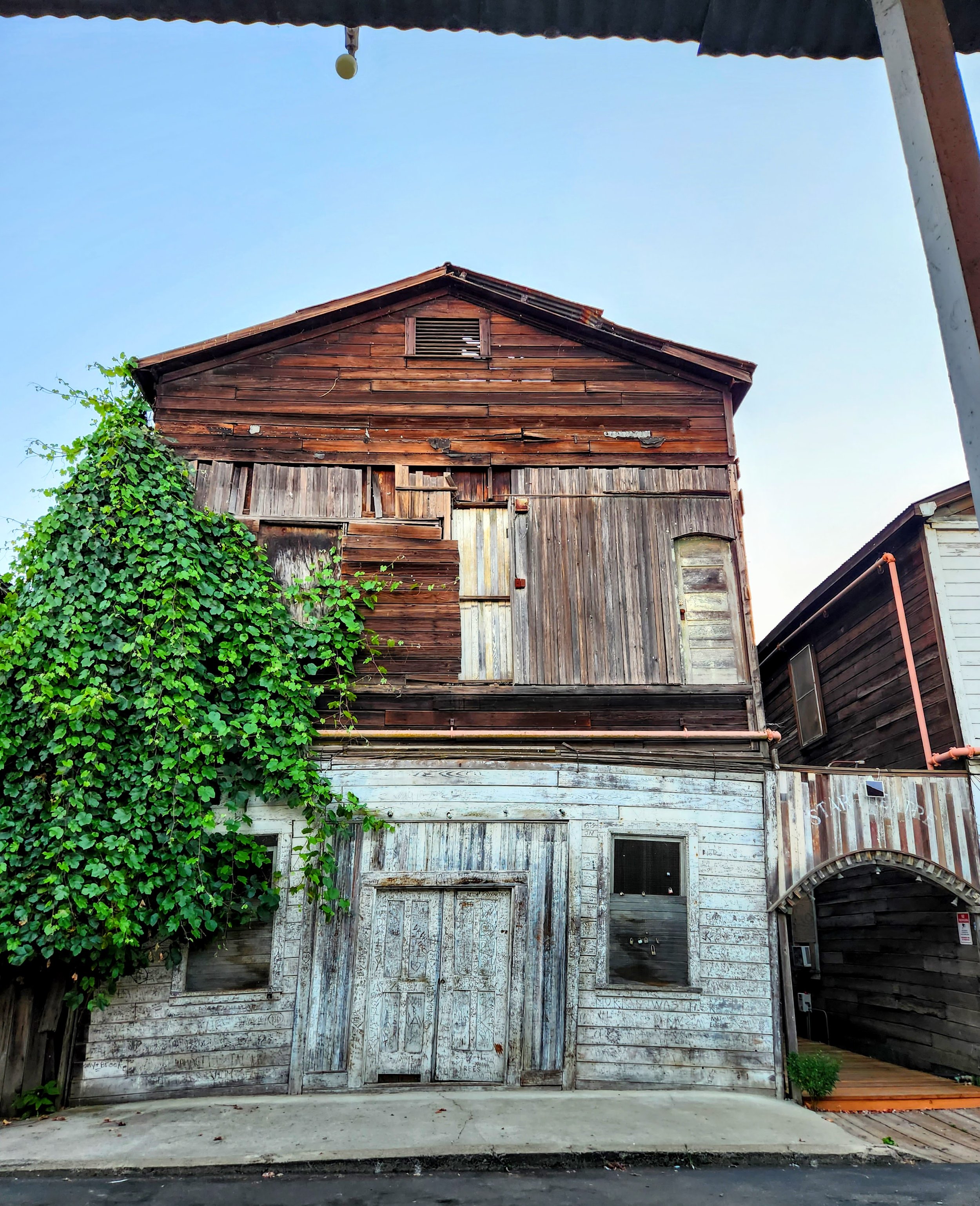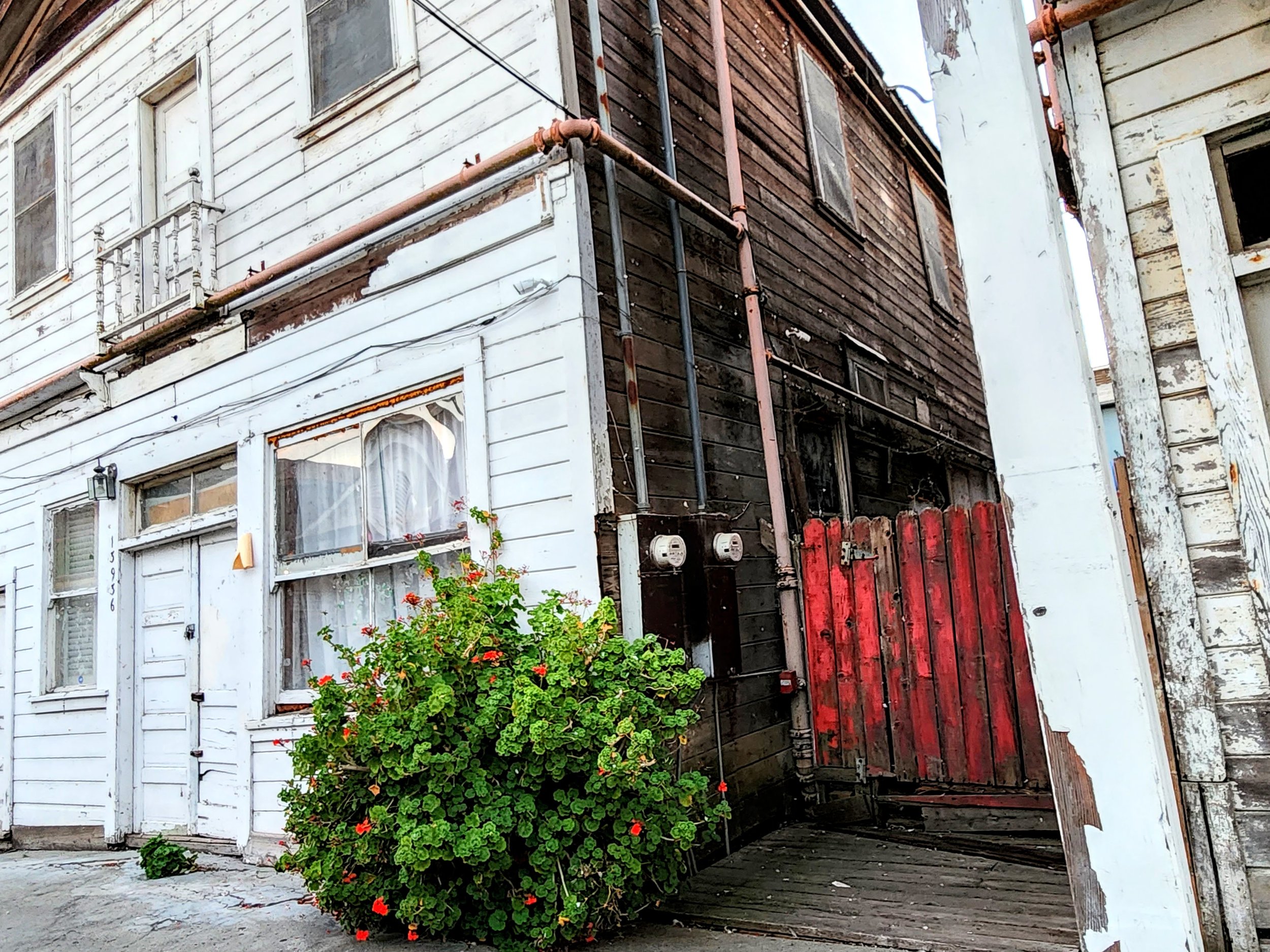Walnut Grove/Locke
In our exploration of Georgiana Slough (by tender) some areas were a bit shallow and local knowledge would make transit much more comfortable so we opt for Three Mile Slough and up the Sacramento River to reach Walnut Grove (25NM). Our good friend and return cruiser, Gumby, is joining us at Walnut Grove for the remaining cruise up to Sacramento.
Three Mile Slough Bridge
The size of the weight chains are impressive
A look back at the Three Mile Slough Bridge
On the Sacramento River we wait for the Rio Vista/Freeport Bridge to open. FYI - there is a four hour minimum advance notice required to schedule an opening for this bridge.
Next up is the Isleton Bridge
Gumby shadowed us along the levee and got a great picture of us going under the Isleton Bridge
It’s a busy summer on the Sacramento River. Tugs and barges are common, carrying rock to rebuild many of the damaged levees from this past winters’ storm.
Looking back at Walnut Grove Bridge installed in 1913. The first cantilever bridge west of the Mississippi.
The sweet little town of Walnut Grove. Founded in 1851 by John Sharp. Sharp operated a ferry that crossed the river. A saw mill was located here and later agriculture with the first crop of Asparagus grown in the Delta.
Looking up river at the Independence docked at the Walnut Grove city dock
The Walnut Grove city dock is first-come, first-serve. It is a newer dock with great cleats and very substantial.
Nice views from up river
Gumby and Larry on the dock
About a mile walk from Walnut Grove to the town of Locke is well worth it to see the history there. Locke is the only rural community in the United States built and occupier by Chinese. Now it is on the National Register of Historic Places. According to visitcadelta.com; In 1912, three Chinese merchants constructed three buildings - a store and saloon, a gambling hall, and a hotel and restaurant. This would become the town of Lockeport, later renamed Locke. Hundreds of Chinese families moved to Locke and worked at the local farms and canneries. Many of the residents were hired to work on extensive levee projects turning the 500,000 acres of wetlands into ‘The Delta’ and some of California’s most valuable farm land. Many of the residents leased land from George Locke, as California’s Alien Land Law of 1913 prevented non-US citizens from owning land (ended in 1952). The leases provided ownership of any buildings, but not the land itself. Locke slowly declined in the 1930’s during the Great Depression and the end of prohibition, also due to increased mechanization in agriculture industry. In 1977, the Locke family sold the town to a development company from Hong Kong and in 2002 the town was sold to the Sacrament Housing and Redevelopment Agency. They (and other agencies) now struggle to preserve many of the original buildings. (information courtesy of the National Park Service website)
Larry and Gumby in front of Al the Wops. According to Hal Schell’s ‘Guide to ‘Cruising California’s Delta’; Italian-American Al Adami (possibly a bootlegger) bought the place from ‘old Bing Lee’ for $2,000 around 1930.
Internet lore has it that gold and silver miners hoping to strike it rich would “write their names on their ‘Get Home’ money and staple it to the ceiling of the local bar”. Perhaps this why there is still money thrown to the ceiling at Al the Wops…
…personally, I’ll save my money for a cold one.
Just a few images of the old buildings on Main Street, Locke
Having gone by several names…Peripheral Canal, Water Fix and Delta Conveyance and now The Water Tunnel Project. According to Cal Matters Commentary by Dan Walters, June 28th, 2023, the “California Governor Gavin Newsom had to concede defeat on trying to get the legislature to give a very contentious water tunnel project streamlined regulatory treatment.” Originally two tunnels, now one, the water from Northern California would bypass the Sacrament-San Joaquin Delta as it is moved to San Joaquin Valley farms and Southern California homes. Now California Governor Gavin Newsom is attempting to partially exempt it (along with other major public works projects) from the California Environmental Quality Act. Hopefully, our legislature will keep fighting to save our Delta, our Salmon and the town of Locke.




























